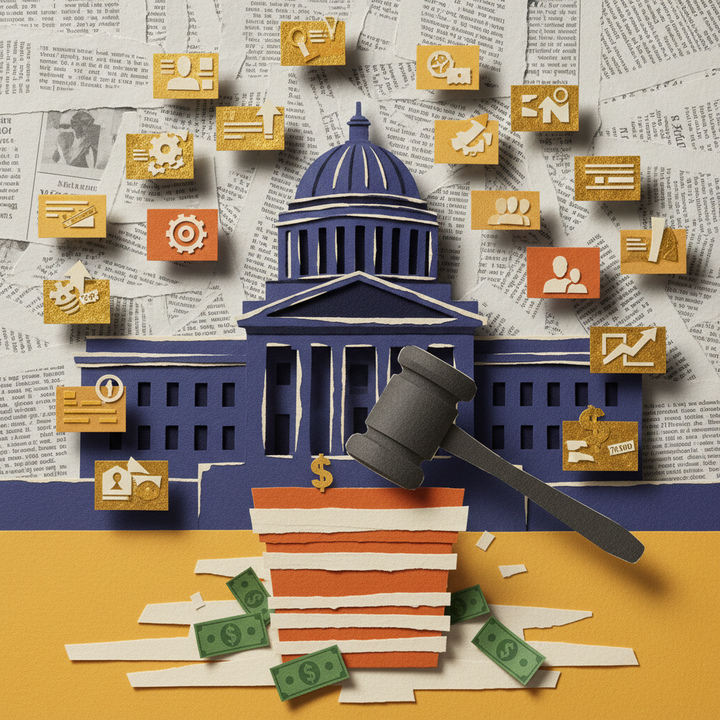Arizona Governor Rejects Bitcoin Reserve Bill, Citing Investment Risks

Arizona Governor Katie Hobbs has officially vetoed a bill that would have allowed the state to hold Bitcoin as part of its official reserves. This decision effectively halts Arizona's efforts to become the first U.S. state to adopt such a policy, raising questions about the future of cryptocurrency investments at the state level.
Key Takeaways
- Governor Katie Hobbs vetoed Senate Bill 1025, which aimed to create a Bitcoin reserve for the state.
- The bill had passed the Arizona House with a narrow vote of 31-25.
- Hobbs cited concerns over Bitcoin being an "untested investment" for state funds.
- Arizona's decision reflects a broader hesitation among states regarding cryptocurrency reserves.
Background on the Bill
Senate Bill 1025 was designed to allow Arizona to invest seized funds into Bitcoin, creating a digital assets reserve managed by state officials. The bill garnered significant attention as it could have positioned Arizona ahead of other states in adopting cryptocurrency reserves.
The legislation was part of a larger trend, with several states exploring similar initiatives. However, Governor Hobbs had previously indicated her intention to veto any legislation that did not align with a bipartisan agreement on funding for healthcare services for individuals with disabilities.
Governor's Concerns
In her veto statement, Governor Hobbs emphasized the importance of sound and informed investments for the Arizona State Retirement System, which is regarded as one of the strongest in the nation. She stated:
"Arizonans' retirement funds are not the place for the state to try untested investments like virtual currency."
This statement reflects a cautious approach to cryptocurrency, which many view as a volatile and speculative asset class. Hobbs' decision aligns with a growing sentiment among lawmakers who are wary of the risks associated with digital currencies.
Implications of the Veto
The veto of Senate Bill 1025 not only halts Arizona's plans for a Bitcoin reserve but also signals a broader trend of skepticism towards cryptocurrency investments at the state level. Other states, such as Oklahoma, Montana, South Dakota, and Wyoming, have also seen similar proposals stall or be withdrawn in recent months.
In contrast, North Carolina's House recently passed the Digital Assets Investment Act, allowing the state treasurer to invest up to 5% of certain funds in approved cryptocurrencies. This divergence highlights the varying approaches states are taking towards digital assets.
The National Context
Arizona's decision comes amid a national conversation about cryptocurrency reserves. U.S. President Donald Trump and some Republican lawmakers have proposed establishing a federal cryptocurrency reserve, with Trump signing an executive order in March to explore a "Strategic Bitcoin Reserve" and a "Digital Asset Stockpile."
As states navigate the complexities of cryptocurrency legislation, Arizona's veto serves as a reminder of the challenges and uncertainties that accompany the adoption of digital assets in public finance. The future of cryptocurrency reserves remains uncertain, with ongoing debates about their viability and risks.
Conclusion
Governor Hobbs' veto of the Bitcoin reserve bill underscores the cautious approach many lawmakers are taking towards cryptocurrency investments. As states continue to explore the potential of digital assets, the balance between innovation and risk management will be crucial in shaping future policies.


